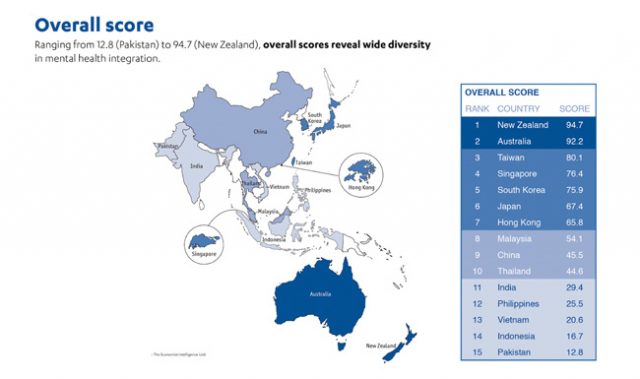
AsianScientist (Mar. 29, 2011) – A comprehensive index ranking the proficiency of non-native English speakers has shown a correlation between English proficiency and income.
Over a period of three years from 2007 to 2009, Education company EF Education First ranked the proficiency of English among a broad population in 44 countries and territories.
The resulting EF English Proficiency Index (EF EPI) gave a number of unexpected results.

Asia’s performance was lower than expected, in light of the amount spent on private English training.
Despite its British colonial legacy and reputation as an English-speaking nation, India is today no more proficient in English than rapidly improving China. It also proved difficult to estimate the number of English users in each country. Today, the two countries have an approximately equal number of English speakers, with China poised to surpass India in a few short years.
Asia also had a range of English proficiency levels from high in Malaysia to very low in Vietnam and Indonesia. The wealthier Asian countries tended to have higher levels of proficiency, as would be expected from their higher rates of school attendance and greater investment in private English courses.
The Index also showed a strong correlation between a country’s English ability and its national income per capita. There were also high correlations with levels of education and with export strength. This is a case of both cause and effect. Richer countries have more to spend on education-including English, the lingua franca of the global economy. In the longer term, more English education boosts average national income by improving economic opportunities.
“In today’s highly competitive global economy, English language proficiency is a basic skill and has never been more important for the entire workforce,” said Bill Fisher, President of EF’s online learning division Englishtown.
“For developing countries to compete successfully in global industries and capitalize on the business outsourcing boom, the ability to produce large numbers of skilled graduates who are able to communicate in English must be a top priority.”
Singapore was not included in this study as English is the native language there.
Related Pages:
- Asia: The Growing Hub of Scientific Research.
- Additional details on EF EPI’s select markets and methodology.
- Full PDF report of the study
———
Source: EF Education First.
Disclaimer: This article does not necessarily reflect the views of AsianScientist or its staff.












